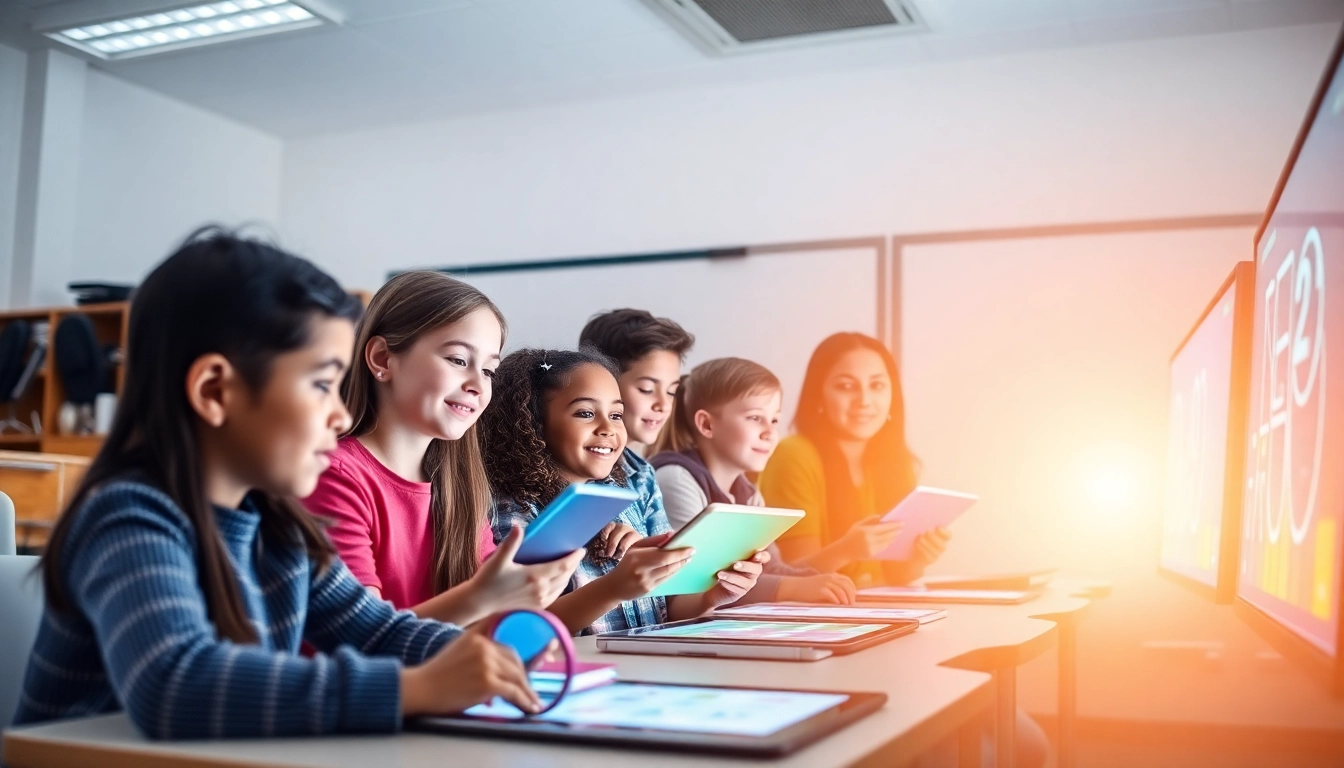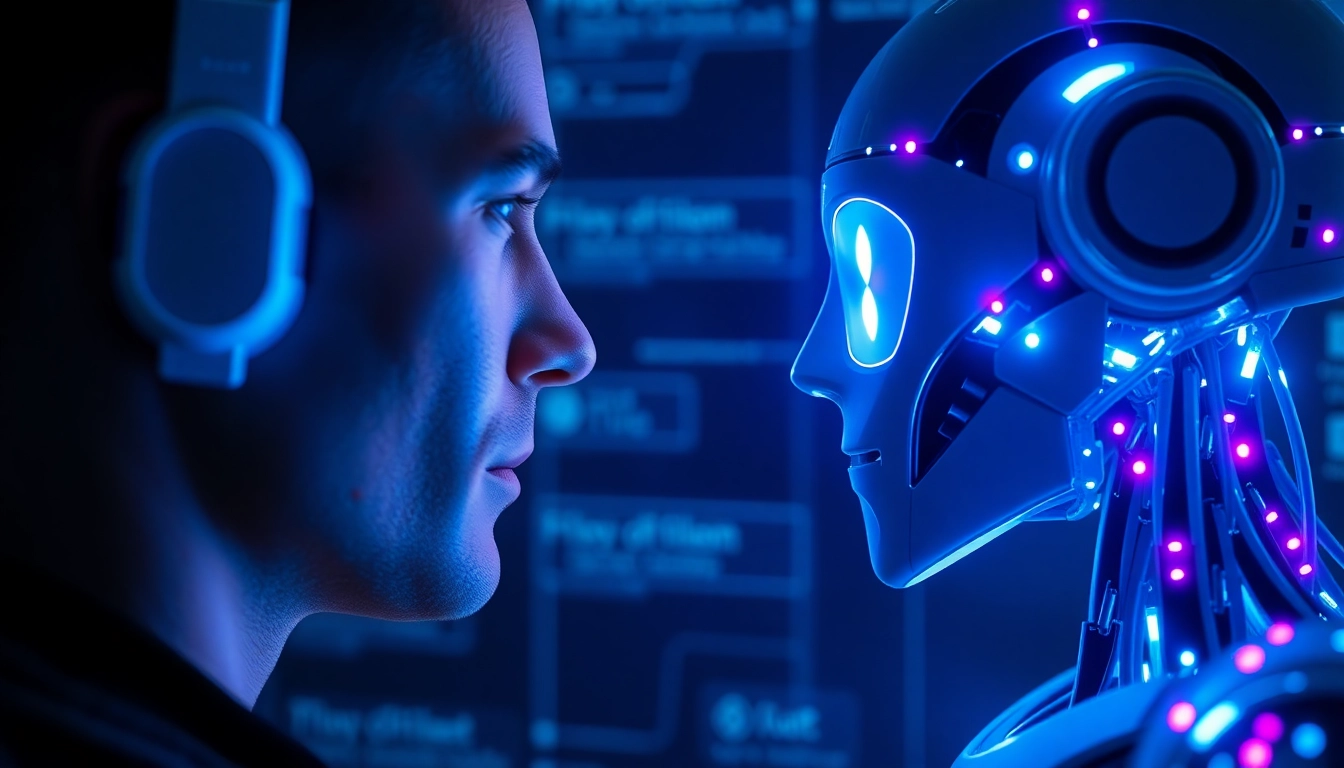Understanding Personalized Learning Platforms and Their Benefits
What Is a Personalized Learning Platform?
A personalized learning platform is an advanced educational software system designed to tailor learning experiences to individual needs, preferences, and pace. Leveraging technologies such as Artificial Intelligence (AI), machine learning, and data analytics, these platforms adapt content delivery, assessments, and feedback to suit each learner’s unique profile. Unlike traditional one-size-fits-all approaches, a personalized learning platform enables educators and trainers to create highly customized pathways that foster engagement, retention, and mastery. By assessing learners’ prior knowledge, learning styles, and goals, these platforms deliver content that resonates, making education more effective and enjoyable.
Key Advantages for Educators and Students
- Enhanced Engagement: Interactive and tailored content increases student involvement, reducing boredom and dropout rates.
- Improved Learning Outcomes: Personalization ensures that learners focus on areas needing improvement, leading to higher mastery rates.
- Time Efficiency: Both educators and learners save hours by automating assessments, feedback, and content adaptation processes.
- Accessibility and Inclusivity: These platforms support diverse learning styles, including visual, auditory, and kinesthetic modalities, ensuring inclusive education for all.
- Data-Driven Insights: Educators gain valuable analytics on learner progress, enabling targeted interventions and continuous improvement.
How Personalized Platforms Transform Learning Outcomes
Research indicates that personalized learning significantly boosts student motivation, comprehension, and retention. By aligning content with learners’ interests and capabilities, these platforms reduce frustration and promote a growth mindset. For instance, in higher education, adaptive systems have demonstrated increased course completion rates and deeper understanding of complex topics. In corporate training, AI-powered platforms customize learning paths to optimize skill development, resulting in faster onboarding and upskilling. Ultimately, personalized platforms empower educators to shift from static content delivery to dynamic, learner-centered environments that drive measurable success.
Designing and Creating Custom Content with a Personalized Learning Platform
Steps to Build Interactive Lessons and Quizzes
Creating engaging, personalized content begins with a structured approach. First, identify the learning objectives aligned with your curriculum or training goals. Next, leverage platform features such as drag-and-drop editors, multimedia integration, and SCORM compliance to develop varied content types including text, videos, simulations, and assessments. Mexty, for example, allows educators to craft interactive lessons in minutes, incorporating quizzes and questions that adapt based on learner responses.
Ensure your content encourages active participation through scenario-based activities, gamification, and branching scenarios. Regularly update the content based on learner feedback and analytics to maintain relevance and engagement. By utilizing tools like AI-assisted content recommendations, you can streamline the creation process, making personalization scalable without adding workload.
Incorporating Multimedia and Engagement Strategies
Multimedia elements—such as videos, animations, audio clips, and interactive simulations—are essential for catering to diverse learning styles. Embedding videos with captions supports visual and auditory learners, while interactive activities promote kinesthetic engagement. Use storytelling techniques, real-world examples, and scenario-based questions to make content relatable and memorable.
Furthermore, gamification—adding badges, leaderboards, and mini-challenges—motivates learners and fosters a competitive yet collaborative learning environment. The key is to balance variety with coherence, ensuring that each element guides learners toward mastery while keeping the experience fresh and stimulating.
Tips for Maintaining Your Unique Teaching Voice at Scale
While automation and templates facilitate scalability, preserving your authentic voice is essential. Personalize instructions, feedback, and storytelling elements to reflect your personality and pedagogical style. Platforms like Mexty enable you to incorporate your branding, tone, and preferred teaching methods seamlessly. Regularly review and update your content to ensure it remains true to your voice and pedagogical vision, even as you scale across larger audiences.
Implementing and Scaling Personalization Effectively
Integrating Data and AI for Learner Insights
Effective personalization hinges on data collection and analysis. Learning platforms gather detailed insights on student engagement, performance, and preferences. AI algorithms analyze this data to identify patterns, predict learner needs, and recommend tailored content. For instance, if a student struggles with a particular concept, the system can automatically suggest remedial modules or alternative explanations, similar to how Cerego’s AI engine creates personalized cognitive maps.
Implementing these insights requires establishing clear KPIs such as progress rates, assessment scores, and engagement metrics. Use dashboards and reports to monitor learner pathways, refining content strategies accordingly. The continuous feedback loop ensures that content remains relevant and responsive to evolving learner needs.
Facilitating Collaboration Within a Community of Creators
Scaling personalized learning benefits from a vibrant community of educators, content creators, and technologists. Platforms like Mexty foster collaboration through shared repositories, remixable content, and co-creation tools. Engaging in peer-to-peer exchanges enriches your resources, sparks innovation, and saves time. Examples include remixing high-quality lessons or sharing best practices for engagement strategies.
Creating a community also invites constructive feedback and peer support, which is crucial for continuous improvement. As a member of such networks, you can stay informed on emerging trends in AI and adaptive learning, ensuring your content remains cutting-edge.
Measuring Impact and Continuous Improvement
Impact assessment involves analyzing learner progress, satisfaction, and achievement metrics. Use platform analytics to track completion rates, assessment scores, and engagement levels over time. Establish baseline data and set measurable goals for improvement.
Based on these insights, implement iterative updates—adding new content, refining existing lessons, and adjusting personalization algorithms. Regular evaluation ensures sustained effectiveness, fostering a cycle of continuous enhancement aligned with learner success.
Overcoming Challenges and Best Practices
Addressing Common Implementation Barriers
Obstacles such as resistance to change, technical issues, and limited expertise can hinder adoption. To overcome these, provide comprehensive training and support for educators and administrators, demonstrating how personalized platforms streamline workflows and improve outcomes. Pilot programs can help showcase benefits and garner buy-in.
Technical challenges, including integration with existing Learning Management Systems (LMS), can be mitigated through standardized APIs and SCORM compliance. Partnering with platform providers that offer dedicated support accelerates deployment.
Ensuring Content Accessibility and Engagement
Accessibility standards—such as WCAG—must be embedded into content design, ensuring that learners with disabilities or diverse needs can participate fully. Use captions, alt text, adjustable fonts, and navigable interfaces. Engagement strategies include incorporating microlearning, real-world relevance, and social learning features to sustain motivation.
Leveraging Feedback to Enhance Personalized Experiences
Solicit continuous feedback from learners through surveys, polls, and direct comments. Use this data to refine content, improve usability, and boost engagement. Dynamic content adjustment driven by feedback creates a responsive learning environment that adapts in real-time, fostering deeper connection and better results.
Real-World Examples and Success Stories
Case Study: Scaling Personalized Learning in Higher Education
Many universities now utilize platforms like Mexty to deliver tailored courses that adapt to individual student progress. For example, a large university integrated AI-driven modules into its STEM programs, resulting in a 15% increase in graduation rates and improved student satisfaction scores. The platform allowed instructors to focus on student support rather than content management, demonstrating scalability and effectiveness.
Innovative Uses of a Personalized Learning Platform in Corporate Training
Leading companies employ personalized platforms to upskill employees efficiently. An IT firm customized onboarding with interactive modules that adjusted difficulty based on learner responses, accelerating skill acquisition by 20%. Gamification and real-world simulations kept employees motivated, while data analytics identified skill gaps swiftly.
Student Success Metrics Driven by Custom Content Strategies
Personalized content directly correlates with higher achievement. For instance, a language learning platform reported a 30% improvement in fluency and retention after implementing tailored content using AI insights. Students also expressed higher satisfaction and motivation, highlighting the importance of individual focus.



